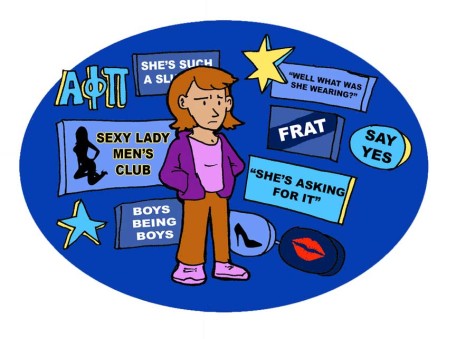You can be a food critic too
You don’t have to wait until after college to critique food. You can begin learning how to now by applying these tips from expert Chicago food critics.
Step one: Have writing skills
“The most important part in writing about food is communicating your ideas clearly,” says Kevin Pang, a food critic on the Chicago Tribune.
If you aspire to critique food, being able to express yourself in writing is a crucial skill, ranked above being able to identity cooking techniques or obscure flavors. “I’m a writer first and a food critic second,” says Phil Vettel, a food critic for the Chicago Tribune.
Courses on effective writing and lots of practice will help you convey your experiences descriptively and succinctly.
Step two: Use all your senses
A food critic judges a dish visually and by smell before taking a single bite because how a dish looks and smells can often affect how it tastes. They evaluate for characteristics such as texture, temperature, and overall freshness of ingredients.
A good food critic also uses their senses to observe their surroundings, judging aspects such as ambiance. cleanliness, and price point.
“You examine every aspect of the restaurant experience. You look at the menu and see if it’s ho-hum or adventurous. You see if the waiters are attentive. You check if there’s crumbs under the table” says Pang. “There’s so many steps, the biggest tip here is to open your eyes.”
Step three: Develop your palate
“Because we [food critics] help our readers decide what to do with their dining budget, the most important part of the review is whether or not the food is good,” says Mike Sula, a food critic at the Chicago Reader.
To determine if a meal was worthwhile or not, the most crucial aspect is taste, and food critics need to be able to recognize flavors within dishes. They do this by developing their palate, which is a person’s appreciation for flavor.
“Before I critique a restaurant I like to go to a place that serves similar food in order to create a ‘taste memory’ for what is good and what is bad,” says Vettel.
Food sometimes tastes great because it has depths of flavor, and food critics educate their palates to identify these complexities. The more you experience different cuisines, the more you will taste layered ingredients.
“You [develop your palate] by eating a lot. You don’t order your favorite foods at a restaurant, you branch out and try something new and unfamiliar,” says Pang.
Food critics may also cleanse their palates between courses in order to help keep flavors separate. “A glass of water is always good to have,” says Sula.
Step four: Be honest
“Ethics is one of the most important parts of writing a review. If you’re not honest then you have no integrity with your audience and they lose trust in you,” says Vettel. “Giving a bad review is hard, but you have to keep in mind that you’re writing for the average customer, and you don’t want them to waste time and money on a bad meal.”
Step five: Learn about food
A common misconception is that food critics must have a culinary background, but this is not the case. Anyone who is willing to dedicate their time and effort to food can become a food critic.
“The only education I received was by reading magazines, books, and dining out a lot. That’s the best education you can have in any subject, at any age: Just dive into a topic by getting your hands onto as many source materials as possible,” says Pang. “Picking up a cookbook and start cooking through it is a great way to learn about how food works.”
Your donation will support the student journalists of the Evanstonian. We are planning a big trip to the Journalism Educators Association conference in Philadelphia in November 2023, and any support will go towards making that trip a reality. Contributions will appear as a charge from SNOSite. Donations are NOT tax-deductible.






